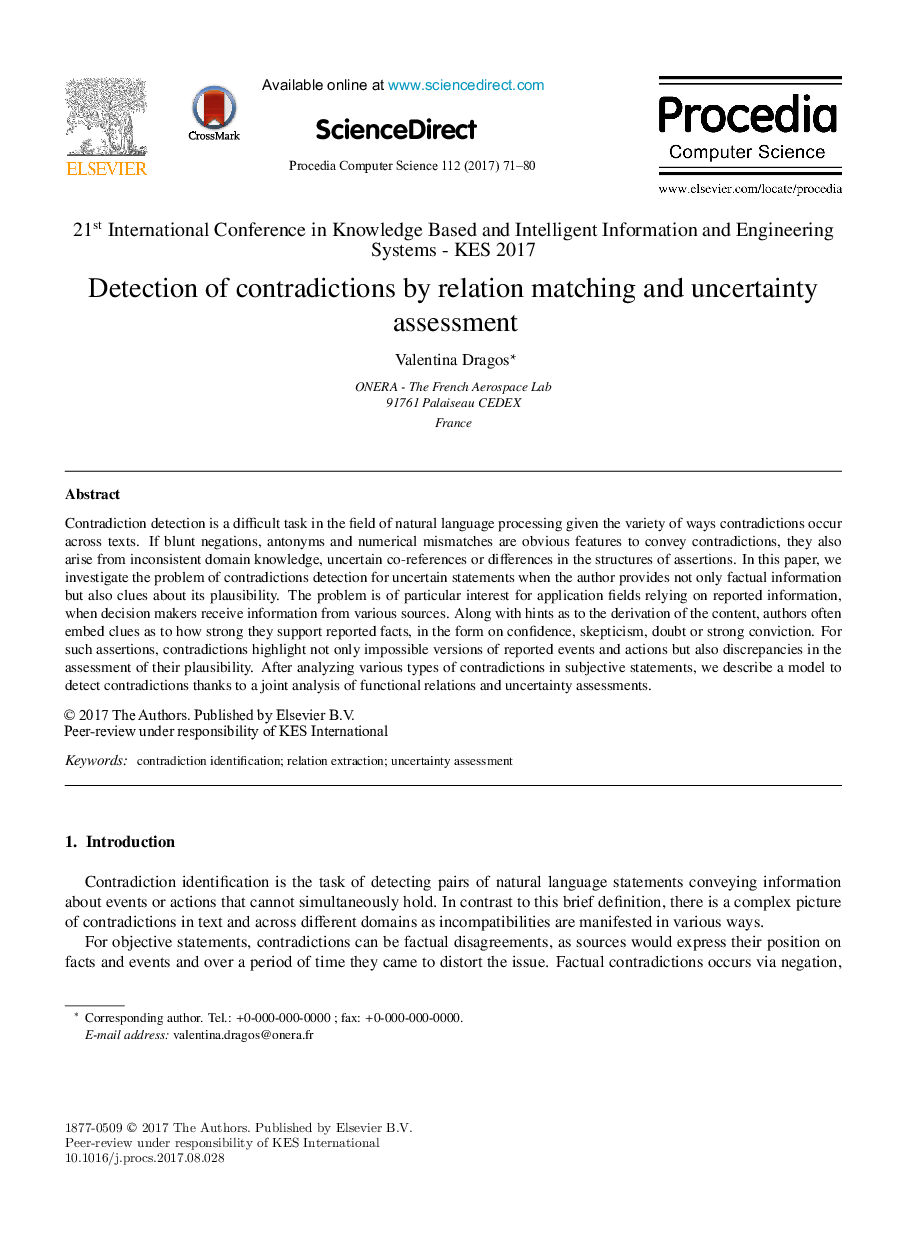| Article ID | Journal | Published Year | Pages | File Type |
|---|---|---|---|---|
| 4960584 | Procedia Computer Science | 2017 | 10 Pages |
Abstract
Contradiction detection is a difficult task in the field of natural language processing given the variety of ways contradictions occur across texts. If blunt negations, antonyms and numerical mismatches are obvious features to convey contradictions, they also arise from inconsistent domain knowledge, uncertain co-references or differences in the structures of assertions. In this paper, we investigate the problem of contradictions detection for uncertain statements when the author provides not only factual information but also clues about its plausibility. The problem is of particular interest for application fields relying on reported information, when decision makers receive information from various sources. Along with hints as to the derivation of the content, authors often embed clues as to how strong they support reported facts, in the form on confidence, skepticism, doubt or strong conviction. For such assertions, contradictions highlight not only impossible versions of reported events and actions but also discrepancies in the assessment of their plausibility. After analyzing various types of contradictions in subjective statements, we describe a model to detect contradictions thanks to a joint analysis of functional relations and uncertainty assessments.
Related Topics
Physical Sciences and Engineering
Computer Science
Computer Science (General)
Authors
Valentina Dragos,
